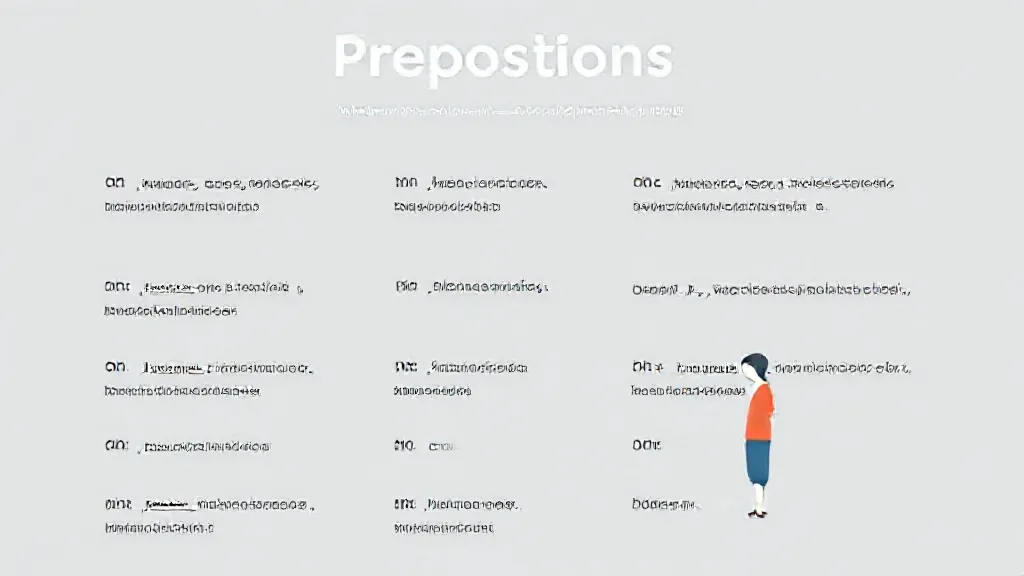Prepositions are often cited as one of the most challenging aspects of the English language for learners and even native speakers. Their correct usage can significantly impact the clarity and precision of communication. In this article, we will delve into the reasons why prepositions are so difficult to master, exploring their functions, the nuances of meaning they convey, and the common pitfalls that learners encounter.
The Role of Prepositions in English Grammar
Prepositions serve as connectors in sentences, linking nouns, pronouns, or phrases to other words. They provide essential information about direction, location, time, and relationships. For instance, in the sentence "The book is on the table," the preposition "on" indicates the position of the book.
Understanding the fundamental role of prepositions is crucial for grasping their complexities. Unlike verbs or nouns, prepositions do not convey action or objects but rather the relationship between them, which can make their usage less intuitive.
The Variety of Prepositions and Their Functions
English contains a wide variety of prepositions, including simple ones like "in," "on," and "at," and complex ones such as "in front of," "next to," and "in spite of.
" Each preposition can have multiple meanings depending on the context. For example, "in" can indicate location ("in the room"), time ("in the morning"), or even abstract relationships ("in trouble"). This multiplicity can confuse learners, who may struggle to select the appropriate preposition for a given situation.
Idiomatic Expressions and Prepositional Phrases
Many prepositional phrases and idiomatic expressions do not follow logical rules, which adds another layer of difficulty. Phrases like "in the long run," "on the other hand," or "at odds with" do not necessarily make sense when analyzed word by word. Such idiomatic expressions are often learned through exposure and practice rather than through strict grammatical rules, making them challenging for non-native speakers.
Common Errors in Preposition Usage
Mistakes in preposition usage are widespread among English learners. Common errors include using the wrong preposition ("interested on" instead of "interested in") or omitting necessary prepositions altogether ("I will meet you 5 PM" instead of "I will meet you at 5 PM"). These errors can lead to misunderstandings and miscommunication, highlighting the importance of mastering preposition usage.
The Influence of Native Language on Preposition Use
For many learners, their native language influences how they use prepositions in English. Languages often have different rules regarding prepositional usage, which can result in direct translations that sound awkward or incorrect in English. For example, a Spanish speaker might say "I have 20 years" instead of "I am 20 years old," reflecting the structure of their native language.
Understanding these differences is vital for learners to avoid common pitfalls.
Teaching Strategies for Mastering Prepositions
Effective teaching strategies can help learners navigate the complexities of prepositions. Incorporating visual aids, interactive exercises, and real-life contexts can enhance understanding.
Additionally, focusing on commonly used prepositional phrases and idiomatic expressions can help learners become more comfortable with their usage. Regular practice through writing and speaking exercises can also reinforce learning.
The Importance of Context in Preposition Usage
Context plays a crucial role in determining the appropriate preposition to use.
The same preposition can convey different meanings in different contexts, making it essential for learners to pay attention to how prepositions function in various sentences. Reading extensively and engaging in conversations can help learners develop an intuitive sense of preposition usage based on context.
Conclusion: The Path to Proficiency
In conclusion, mastering prepositions requires time, practice, and a deep understanding of their functions and nuances.
By recognizing the challenges posed by prepositions, learners can approach them with greater awareness and determination. With the right strategies and resources, anyone can improve their preposition usage, leading to clearer and more effective communication in English.
